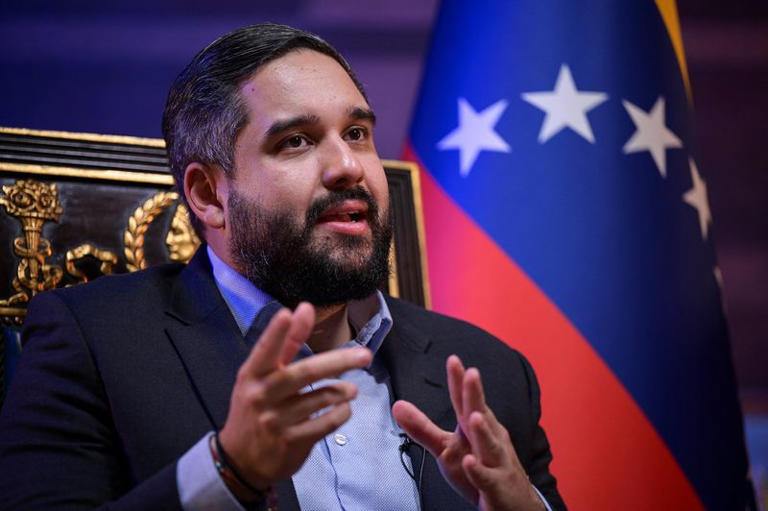In the recent interview with Reuters, Venezuelan lawmaker Nicolas Maduro Guerra shed light on Venezuela’s stance regarding its substantial debt to China, a topic of significant importance given the country’s intricate economic ties and ongoing efforts to navigate its challenging financial landscape. As the son of President Nicolas Maduro and a prominent figure within Venezuela’s National Assembly, Maduro Guerra’s statements carry weight and provide insights into the government’s strategies and priorities.
Maduro Guerra’s assertion that Venezuela is open to fulfilling its $10 billion debt to China underscores the country’s commitment to maintaining positive relations with one of its key economic partners. China’s significance to Venezuela’s economic landscape cannot be overstated, particularly in the realm of energy, where Chinese investment and collaboration have played a pivotal role in sustaining Venezuela’s oil and gas sector.
The characterization of the relationship between Venezuela and China as “foolproof and weatherproof” suggests a level of confidence in the durability and resilience of their partnership, even amidst external challenges such as economic sanctions and fluctuating global market conditions. This portrayal reflects Venezuela’s reliance on China as a crucial source of investment, trade, and financial support, especially during times of economic hardship.
Maduro Guerra’s mention of Chinese companies’ interest in investing in Venezuela further highlights the potential for continued collaboration and mutual benefit between the two nations. Given China’s expertise and resources, particularly in infrastructure development and energy projects, such investments could contribute to Venezuela’s economic recovery and long-term stability.
The historical context of China’s involvement in Venezuela’s oil and gas sector, dating back to the era of former President Hugo Chavez, underscores the depth of the economic relationship between the two countries. The $50 billion agreement reached in 2007, involving credit lines and loans-for-oil deals, symbolizes the scale of China’s investment in Venezuela’s energy resources and its strategic importance as a creditor.
Despite Venezuela’s economic challenges, including negotiations for grace periods on substantial loans, Maduro Guerra’s affirmation of the country’s willingness to address its debt obligations to China signals a commitment to financial responsibility and international cooperation. This stance is crucial for maintaining credibility and fostering trust with key stakeholders in the global community.
The timing of Maduro Guerra’s statements, amid preparations for Venezuela’s upcoming presidential elections and escalating tensions with the United States, adds a layer of complexity to the country’s economic and diplomatic landscape. Venezuela’s efforts to diversify its oil markets in response to U.S. sanctions reflect a strategic shift in its foreign policy priorities, as it seeks to mitigate the impact of external pressure on its economy.
Maduro Guerra’s acknowledgment of ongoing communication channels with the United States, despite diplomatic challenges, suggests a willingness to engage in dialogue and find diplomatic solutions to bilateral issues. This pragmatic approach underscores Venezuela’s recognition of the importance of international cooperation in addressing its economic and political challenges.
Overall, Maduro Guerra’s interview offers valuable insights into Venezuela’s economic policies, diplomatic strategies, and efforts to navigate its complex relationship with China amidst a challenging global environment. As Venezuela continues to grapple with economic hardship and political uncertainty, maintaining productive partnerships with key allies like China remains essential for its future development and stability.
